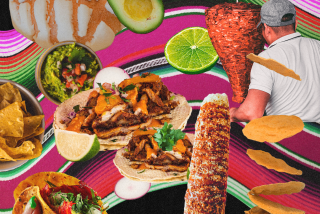Taste buds and âtude: The food and mood link

Research sheds light on how food affects mood and the flip side: how emotions impact taste.
All day, food metaphors weave their way into our thoughts about others. Watching someone cut in line may leave a bad taste in your mouth. Your current love may be the sweetest person you know.
A growing body of evidence is making clear the links between what we taste and how we feel: Repulsion is repulsion, whether caused by a shameful act or a rotten egg. âYour brain canât tell the difference between something that tastes bad and something that makes you feel morally violated,â says Kendall Eskine, a cognitive psychologist at Loyola University in New Orleans.
Sweet taste, sweet demeanor
For two weeks in the spring of 2009, North Dakota State University shut down so that students could help place millions of sandbags along the Red River to prevent disastrous flooding during an especially wet season. Once the danger had subsided, psychologists saw a research opportunity: They asked more than 100 students how likely they were to help take down the sandbags â a less dire and purely voluntary act.
Those who liked sweet foods most, the researchers reported last year in the Journal of Personality and Social Psychology, were most likely to offer help, not just with the sandbags but also with an unrelated study for an English professor.
The findings suggest a link between having a sweet tooth and a sweet disposition â a link that the study documented in other ways too. People rated themselves as more agreeable and they were more generous with their time, for example, after eating a small piece of sweet chocolate than after eating a sour candy or a bland cracker. They also rated pictures of random faces more highly if captions explained that those people liked sweet foods.
âMorality used to be considered in terms of this abstract calculus involving really principled sorts of ideas, but moral judgments are much more influenced by bodily processes and bodily experiencesâ than previously understood, says Michael Robinson, a social psychologist at North Dakota State University in Fargo.
Eating jelly beans or even just talking about your love for sweets, in other words, might make you more likable. The research suggests that visibly eating or offering cookies could be a subversively effective way to impress loan officers, love interests or your boss.
Bad taste in the mouth, and the brain
People who were told in a study to drink a bitter-tasting herbal supplement offered particularly harsh judgments of morally questionable scenarios about things such as like a library book-stealing student or a man eating his own already-dead dog. Participants who drank a sweet berry punch or water, Loyolaâs Eskine and colleagues reported last year in the journal Psychological Science, werenât so condemning. Disgust proved especially strong for people who described themselves as politically conservative.
On the flip side, Eskineâs group found more recently that thinking about morally loaded acts can also change the way food tastes. Given a neutral-tasting shot of diluted blue Gatorade, participants in a study in press at the journal PLoS One thought the beverage tasted more delicious after reading about someone being morally virtuous and more disgusting after reading about a moral transgression.
The findings raise questions about whether jurors, politicians and voters might be influenced by what theyâve recently eaten. At the very least, Eskine says, knowing that your tastes for food and morality are tightly linked might be half the battle.
âAll of these little incidental bodily experiences can change or shape our judgments. Thereâs more and more evidence of that popping up all the time,â he says. âI donât think we are victims to our bodies, but awareness can help us from making really harsh judgments just because we are drinking something gross.â





